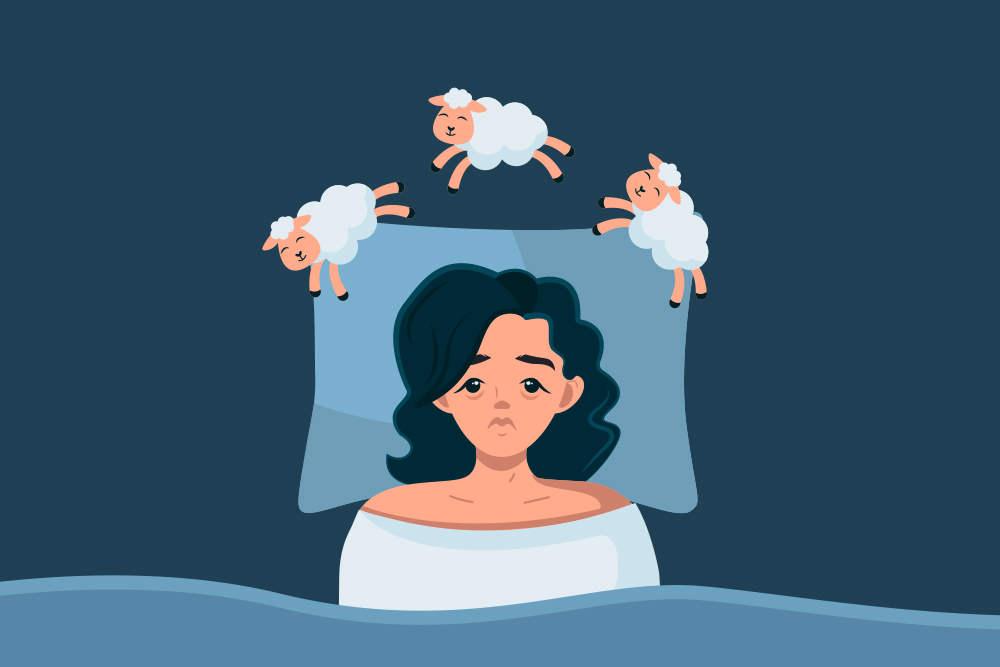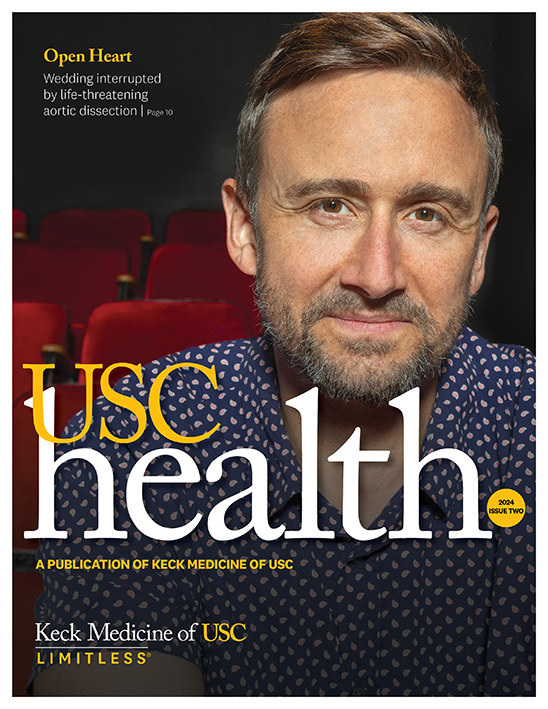
Keck Medicine of USC experts discuss underlying medical conditions that may be causing your sleep trouble.
Insomnia
The most common sleep disorder in the United States, according to The National Institutes of Health, insomnia is very often a psychophysiological disorder that encompasses difficulties with falling asleep, staying asleep or both.
“Many things can cause insomnia,” says Richard Castriotta, MD, a Keck Medicine sleep disorder specialist and pulmonologist. “Poor sleep hygiene, blue light exposure before bed, drugs (including many medications and food supplements), alcohol, anxiety and depression are just a few.”
Common treatments:
• Cognitive behavioral therapy for insomnia (CBT-I)
• Prescription medication
• Sleep hygiene modification
Breathe easier
Sebastian M. Jara, MD, MPH, a sleep specialist with the USC Caruso Department of Otolaryngology — Head and Neck Surgery, says obstructive sleep apnea — repetitive pauses in breathing during sleep — causes “significant sleep issues resulting in memory problems, energy loss and even potentially cardiovascular disease.”
Possible treatments:
• Lifestyle modifications
• CPAP
• Dental devices
• Tongue stimulation implant
• Surgeries such as:
• Deviated septum correction
• Throat surgery (i.e., tonsillectomy)
• Jaw advancement
Midnight bathroom trips
“Nocturia is when someone wakes up to urinate more than once a night,” says Hooman Djaladat, MD, MS, a urologist with USC Urology. “It can be due to diseases such as heart failure, edema (fluid buildup in body tissues), urinary tract problems or neurologic conditions.”
Sleep through the night:
• Limit water intake before bed
• Address related disorders
• Prescription medication
Menopause: Before, during and after
Keck Medicine OB/GYN Kimeshia Thomas, MD, says that although sleep problems aren’t a well-known symptom, “about 40% to 60% of peri- and postmenopausal women report waking up frequently in the middle of the night.” This can be due to hot flashes, night sweats and other symptoms.
Find relief:
• Consistent sleep schedule
• Sleep therapy
• Hormone therapy
Spine disorders
Herniated discs and sciatica pain often disrupt sleep, says John C. Liu, MD, co-director of the USC Spine Center. “We counsel people on how to sleep properly, but every spine is different — what works for some won’t work for others.”
Dr. Liu suggests trying:
• Supportive sleep positions
• Various orthopaedic pillows
• Find the right mattress for you (test options for 15-20 minutes each)
Interested in supporting the work of Keck Medicine? Visit this page.
Topics


